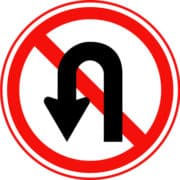Take Advantage of the IRS’ First-Time Penalty Abatement Policy
Filing and paying state and federal taxes can be complicated, inconvenient, and unnerving. Deadlines can be hard to remember and even harder to meet. And since state and federal tax law is constantly changing, it’s nearly impossible to keep up.
With all this confusion and bureaucracy, failing to file and pay your taxes is an understandable mistake—and one that is easy to make.
If you’ve missed a filing or payment deadline, you’re probably subject to penalties. But you could be eligible to waive these fees if you meet certain criteria. Keep reading to learn more about the IRS First Time Penalty Abatement program and how it could improve your tax situation.
What Is First Time Penalty Abatement?
First time penalty abatement (FTA) waives a taxpayer’s first failure-to-file, failure-to-pay, or failure-to-deposit penalty.
The Internal Revenue Service understands that everyone makes mistakes, and they want to reward individuals who have a good tax history with a free pass for that first mistake—which is good news, because the penalties aren’t cheap. If your 2023 tax return is more than 60 days late, the minimum Failure to File Penalty is $450!
Here’s how these tax penalties are assessed.
- Failure-to-File Penalty: Failing to file your tax returns by the annual due date without an acceptable reason will result in a 5% fee for each month (or partial month) that passes before you file. This amount cannot exceed 25% of your tax liability.
- Failure-to-Pay Penalty: Failure to pay taxes by the tax return due date without an acceptable reason will result in a 0.5% fee for each month (or partial month) that passes before you file. This amount cannot exceed 25% of your unpaid taxes.
- Failure-to-Deposit: Businesses that fail to deposit federal taxes on behalf of their employees accurately and on time are charged based on how late they are. Late employment taxes generate the following penalties:
- 2% for being 1-5 days late.
- 5% for being 6-15 days late.
- 10% for being more than 15 days late.
- 15% if the business fails to pay more than 10 days after the first payment notice.
Unfortunately, the FTA does not apply to several other penalties, such as estimated tax or accuracy-related penalties—or event-based filing requirements. In addition, estate and gift tax returns do not qualify for tax penalty abatement.
Also, it’s important to remember that the FTA only applies to the penalty amount; it does not change the tax amount that you owe.
Still, if you are eligible for penalty relief, you could save yourself a lot of money in fees (not to mention some serious headaches).
Who Is Eligible for First Time Penalty Abatement
Here’s who may qualify for first time penalty abatement:
Clean Penalty History: The taxpayer cannot have previous tax-related penalties for at least three years.
Filing Compliance: The taxpayer must have filed all necessary returns—or have filed for an extension.
Payment Compliance: The taxpayer must be current with all tax payments—or have entered into an Installment Agreement.
You should know that you can only use FTA during a single tax year. If your FTA request is for two or more tax years, penalty relief will only apply to the most recent tax year you are eligible for.
If you are not eligible for FTA, there are other penalty abatements available for those that can show reasonable cause. In general, you cannot claim reasonable cause if your tax professional made the filing error, or if the reason listed is lack of funds. However, if you can show that an honest error was made (such as transposing two numbers), there was a natural disaster, or you had a personal emergency, these can be accepted as reasonable cause for getting your penalties abated.
Related Content: Penalty Abatement Tax Services
How to File for Tax Penalty Abatement
If you have taxes owed to the IRS, they have probably sent you a notice about that debt, and the notice should include instructions for abatement of your tax penalties.
First time penalty abatement is easily granted to qualifying taxpayers with a simple phone call. You can also request penalty relief by filing Form 843, which will ask you for basic information to help the IRS identify the tax return that is associated with the first-time abatement request. This is the same form you would use if you were requesting penalty relief due to reasonable cause.
If you have not taken advantage of the first-time abatement policy, then the IRS will first apply the FTA administrative waiver to your case, even if your application is reasonable cause penalty relief.
How to Increase Your Chances at First Time Penalty Abatement
When it comes to successfully filing for FTA, be sure to show previous compliance in writing and with supporting documents. If you have had a penalty, but it was more than three years ago, you should highlight your compliance history and explain the reasoning for your late filing, payment, or deposit.
You can make your request for FTA by phone or in writing, but be sure to follow up with the IRS. Often times, you will receive approval immediately over the phone, but if you haven’t received a response within 10 business days of making your request, call the IRS to ensure your request has been received and to make a new request if necessary. In addition, be sure that the IRS places a hold on your collection while the IRS is considering your abatement request.
Finally, be sure to file your FTA request within three years of the filing date for the year in question and/or two years after you originally paid the penalty. If you fail to do so, you will lose your FTA eligibility and be stuck with the fines you owe.
Contact S.H. Block Tax Services to Learn More!
If you or someone you know has failed to file or pay your taxes, or have been subjected to an IRS mistake, S.H. Block Tax Services is here to help. Our skilled and experienced attorneys focus exclusively on state and federal tax issues and are ready to fight on your behalf.
We can help you file for penalty abatement; and if you’re struggling with your tax burden, we can also work with you to find a payment arrangement. The IRS offers several options, like an installment agreement, and our team can compassionately help you determine which will work best for your finances. Tax debt is stressful, and we’d like to help you get free from this debt.
To schedule your free consultation today, please call (410) 872-8376 or complete this brief form!
The content provided here is for informational purposes only and should not be construed as legal advice on any subject.











Leave a Reply
Want to join the discussion?Feel free to contribute!